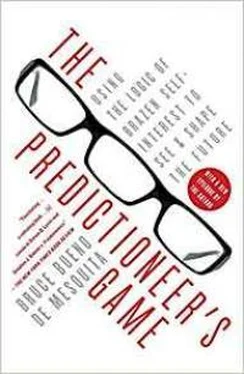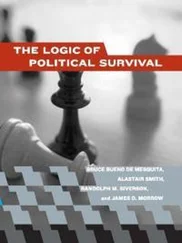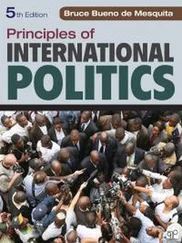Wait a moment, let’s slow down and think about that. The argument boils down to claiming that when the costs of war get to be really big—arms are out of proportion to the threat—war becomes more likely. That’s really odd. Common sense and basic economics teach us that when the cost of anything goes up, we generally buy less, not more. Why should that be any less true of war?
True, just about every war has been preceded by a buildup in weapons, but that is not the relevant observation. It is akin to looking at a baseball player’s positive test for steroids as proof that he cheats. What we want to know is how often the acquisition of lots more weapons leads to war, not how often wars are preceded by the purchase of arms. The answer to the question we care about is, not very often .
By looking at wars and then asking whether there had been an arms race, we confuse cause and effect. We ignore all the instances in which arms may successfully deter fighting exactly because the anticipated destruction is so high. Big wars are very rare precisely because when we expect high costs we look for ways to compromise. That, for instance, is why the 1962 Cuban Missile Crisis ended peacefully. That is why every major crisis between the United States and the Soviet Union throughout the cold war ended without the initiation of a hot war. The fear of nuclear annihilation kept it cold. That is why lots of events that could have ignited world wars ended peacefully and are now all but forgotten.
So, in war and especially in peace, reverse causality is at work. When policy makers turn to arms control deals, thinking they are promoting peace, they are taking much bigger risks than they seem to realize. Failing to think about reverse causation leads to poor predictions of what is likely to happen, and that can lead to dangerous decisions and even to catastrophic war.
We will see many more instances of this kind of reasoning in later chapters. We will examine, for example, why most corporate fraud probably is not sparked by executive greed and why treaties to control greenhouse gas emissions may not be the best way to fight global warning. Each example reinforces the idea that correlation is not causation. They also remind us that the logic of reverse causation—called endogeneity in game theory—means that what we actually “observe”—such as arms races followed by war—are often biased samples.
The fact that decisions can be altered by the expectation of their consequences has lots of implications. In Game Theory 101 we talked about bluffing. Working out when promises or threats should be taken seriously and when they are (in game-theory-speak) “cheap talk” is fundamental to solving complicated situations in business, in politics, and in our daily encounters. Sorting out when promises or threats are sincere and when they are just talk is the problem of determining whether commitments are credible.
LET’S PLAY GAMES
In predicting and engineering the future, part of getting things right is working out what stands in the way of this or that particular outcome. Even after pots of money are won at cards, or hands are shaken and contracts or treaties are signed, we can’t be sure of what will actually get implemented. We always have to ask about commitments. Deals and promises, however sincerely made, can unravel for lots of reasons. Economists have come up with a superbly descriptive label for a problem in enforcing contracts. They ask, is the contract “renegotiation-proof”? 3This question is at the heart of litigiousness in the United States.
I once worked on a lawsuit involving two power companies. One produced excess electricity and sold it to a different electric company in another state. As it happened, the price for electricity shot way up after the contract was signed. The contract called for delivery at an agreed-upon lower price. The power seller stopped delivering the promised electricity to the buyer, demanding more money for it. Naturally, the buyer objected, pointing out that the contract did not provide for changing the price just because market conditions changed. That was a risk that the buyer and seller agreed to take when they signed their contract. Still, the seller refused to deliver electricity. The seller was sued and defended itself vigorously so that legal costs racked up on both sides. All the while that bitter accusations flew back and forth, the seller kept offering to make a new deal with the plaintiff. The deal involved renegotiating their contract to make adjustments for extreme changes in market prices. The plaintiff resisted, always pointing—rightly—to the contract. But the plaintiff also really needed the electricity and couldn’t get it anywhere else for a better price than the seller, my client, was willing to take—and my client knew that. Eventually, the cost of not providing the necessary electricity to their own clients became so great that the plaintiff caved in and took the deal they were offered.
Here was nasty, avaricious human nature hard at work in just the way game theorists think about it. Yes, there was a contract, and its terms were clear enough, but the cost of fighting to enforce the contract became too great. However much the plaintiff declared its intent to fight the case in court, the defendant knew it was bluffing. The plaintiff’s need for electricity and the cost of battling the case out in court were greater than the cost of accepting a new deal. And so it was clear that the terms of the contract were not renegotiation-proof. The original deal was set aside and a new one was struck. The original deal really was not a firm commitment to sell (or probably, for that matter, to buy) electricity at a specified price over a specified time period when the market price moved markedly from the price stipulated in the agreement. Justice gave way, as it so often does in our judicial system, to the relative ability of plaintiffs and defendants to endure pain.
Commitment problems come in other varieties. The classic game theory illustration of a commitment problem is seen in the game called the prisoner’s dilemma, which is played out on almost every cop show on TV every night of the week. The story is that two criminals (I’ll call them Chris and Pat) are arrested. Each is held in a separate cell, with no communication between them. The police and the DA do not have enough evidence to convict them of the serious crime they allegedly committed. But they do have enough evidence to convict them of a lesser offense. If Chris and Pat cooperate with each other by remaining silent, they’ll be charged and convicted of the lesser crime. If they both confess, they’ll each receive a stiff sentence. However, if one confesses and the other does not, then the one who confesses—ratting out the other—will get off with time served, and the other will be put away for life without a chance for parole.
It is possible, maybe even likely, that Chris and Pat, our two crooks, made a deal beforehand, promising to remain silent if they are caught. The problem is that their promise to each other is not credible because it’s always in their interest—if the game is not going to be repeated an indefinite number of times—to renege, talking a blue streak to make a deal with the prosecutor. Here’s how it works:
THE PRISONER’S DILEMMA
Pat’s Choices →
Chris’s Choices
↓
Don’t confess (stay faithful to Chris)
Confess (rat out Chris)
Don’t confess (stay faithful to Pat)
Chris and Pat get 5 years
Chris gets life; Pat gets time served
Confess (rat out Pat)
Chris gets time served; Pat gets life
Chris and Pat get 15 years
After Chris and Pat are arrested, neither knows whether the other will confess or really will stay silent as promised. What Chris knows is that if Pat is true to his word and doesn’t talk, Chris can get off with time served by betraying Pat. If instead Chris stays faithful to her promise and keeps silent too, she can expect to get five years. Remember, game theory reasoning takes a dim view of human nature. Each of the crooks looks out for numero uno. Chris cares about Chris; Pat looks out only for Pat. So if Pat is a good, loyal buddy—that is, a sucker—Chris can take advantage of the chance she’s been given to enter a plea. Chris would walk and Pat would go to prison for life.
Читать дальше












